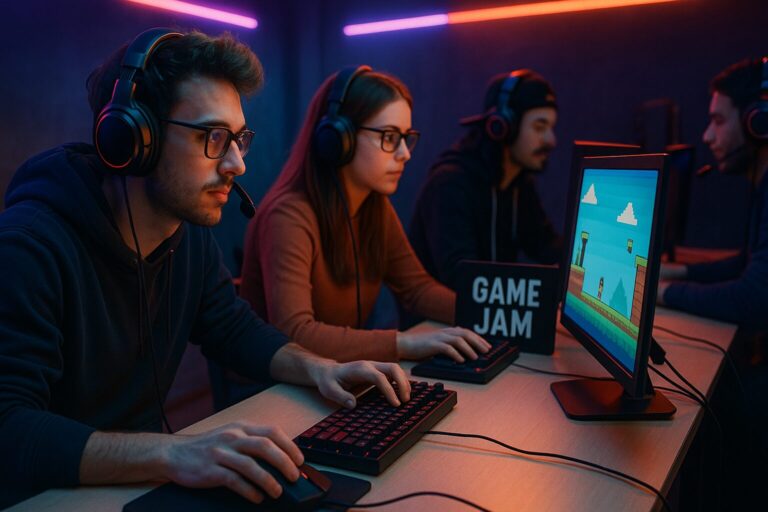
What You Need to Know Before You Burn Out or Give Up
Starting your journey as a game developer is exciting. You’ve got ideas, energy, and big dreams. But if you’re not careful, you’ll run face-first into common pitfalls that stall your progress or kill your motivation.
Here are five essential tips every new game developer needs to hear—especially if you want to actually finish what you start.
1. Start Smaller Than You Think
Why It Matters:
Most new developers overestimate what they can build and underestimate how much work game development really takes. Ambition is great, but it doesn’t get your game finished. Scope does.
What to Do:
- Cut your idea in half. Then cut it again.
- Make something like a one-level platformer, a single-screen puzzle, or a top-down movement demo.
- Focus on one mechanic: jump, shoot, dodge, collect, etc.
Finish a tiny project before you try building your dream game. Proving you can complete something builds confidence and skill.
2. Learn By Doing, Not Just Watching
Why It Matters:
You can binge hours of YouTube tutorials and still not understand how to make a game. Passive learning won’t get you far.
What to Do:
- Follow tutorials actively. Pause the video, try changing values, and break things on purpose.
- Build small games while you learn.
- Don’t just copy-paste code—understand why it works.
Resources:
- Godot: Your First 2D Game
- Unity Learn Platform
- CS50’s Intro to Computer Science (for general coding)
Every time you solve a problem on your own, you level up.
3. Use Free Tools and Assets
Why It Matters:
Trying to create everything yourself—code, art, sound, music, UI—is a fast track to burnout. Especially when you’re still learning.
What to Do:
- Use free assets for placeholders and prototypes.
- Focus on building something that works, not something that looks perfect.
Resources:
- Kenney.nl – Free 2D/3D assets
- Itch.io Game Assets – Community-made art packs
- Freesound.org – Royalty-free sound effects
- OpenGameArt.org – Art, sound, and music for game devs
Once you get the gameplay solid, then you can worry about custom visuals.
4. Test Early and Often
Why It Matters:
It’s easy to spend weeks polishing features without realizing your core gameplay is boring, broken, or confusing.
What to Do:
- Test the game yourself constantly—even unfinished parts.
- Let friends or family play it and watch them (don’t explain anything).
- Pay attention to confusion, frustration, or boredom.
Make sure the game is fun and functional before you worry about polish.
5. Finish Something—Anything
Why It Matters:
Unfinished projects don’t teach you how to finish. The biggest difference between hobbyists and actual game developers is that developers ship games—even small ones.
What to Do:
- Set a clear, limited scope and deadline.
- When the game is playable and relatively bug-free, release it.
- Upload to Itch.io or share it with friends.
Done > Perfect. Every finished game makes the next one easier.
Final Thought
Game development is a skill that takes time to build. You’ll struggle, hit bugs, lose motivation, and wonder if you’re cut out for it. That’s all normal.
What matters is that you keep going. Stay small. Stay consistent. Finish projects. And keep learning from every mistake.
If you’re serious about becoming a game developer, stick with NoobGame.dev—we’ll help you get there, one finished game at a time.






